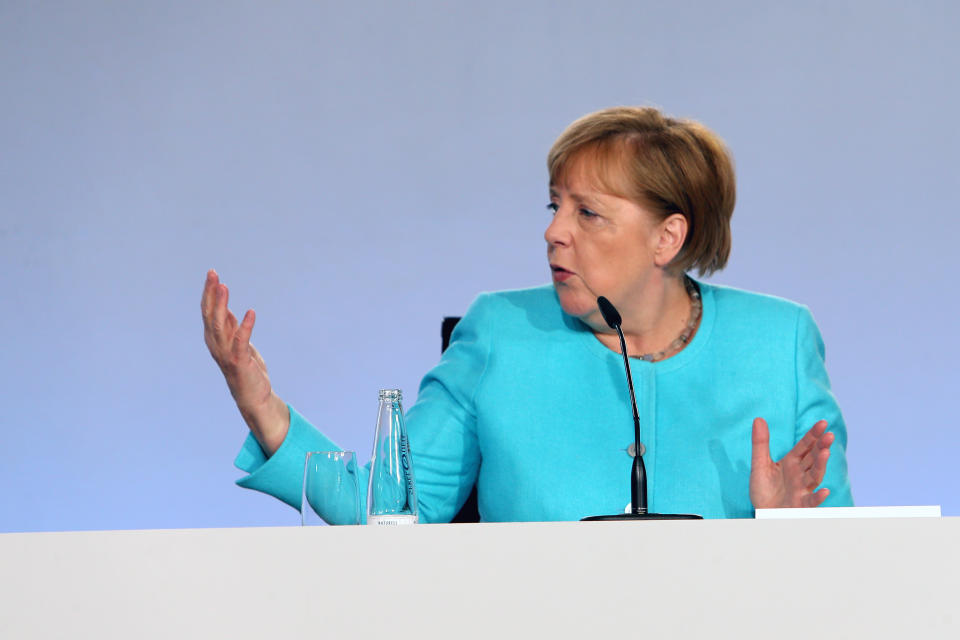Coronavirus: Berlin unveils €130bn package to reboot German economy

Germany announced a €130bn (£116bn, $145bn ) financial stimulus package to help boost economic recovery from the coronavirus pandemic following two days of coalition government negotiations that ended on Wednesday evening.
Although Germany has suffered comparably fewer COVID-19 deaths than other European countries, Europe’s largest economy has been deeply dented from the lockdown and the collapse in global demand for its exports.
The German economy is predicted to shrink by 6.6% this year, and is bracing for its worst recession in post-war history.
“It is not only the size of the packages which is remarkable but also the fact that the German government has made a complete U-turn in its approach to fiscal policy,” ING’s chief eurozone economist Carsten Brzeski said.
“From austerity champion to big spender – a few months ago, concluding with such a comment on German fiscal policy would have been almost unthinkable.”
The country’s vital automotive industry did not get its cash-for-clunkers programme, rather the buyer incentives for new electric cars will be doubled to between €3,000 and €6,000 depending on the model.
The electric-car incentives are part of a €50bn pot to be put towards tackling climate change, innovation, and digitalisation. Despite its lobbying, the car companies did not get buyer incentives for internal-combustion engine cars.
“We couldn’t just set out a stimulus package that was done in the traditional sense,” chancellor Angela Merkel told reporters on Wednesday (3 June) in Berlin. “It had to be a package of measures that contained a view to the future. And this is precisely what we have emphasised.”
The government will lower VAT from 19% to 16% from next month through September, and from 7% to 5% for the hospitality industry. It also agreed a one-off cash handout of €300 per child for families.
READ MORE: Germany bids goodbye to ‘black zero’ with €750bn coronavirus package
It also earmarked €25bn in loans and grants to support small and medium-sized businesses over the next three months.
However, an extension of the country’s lauded ‘Kurzarbeit’ (“short-work”) wage support scheme did not form part of the new measures. The Social Democrats, junior partners to Merkel’s conservative bloc in the federal government, wanted to extend it from 12 to 24 months.
This Kurzarbeit programme —where the government pays companies 60% of a worker’s salary so they can be sent home rather than made redundant—has been a great benefit to the economy in this current crisis, and during the 2009 financial crisis. It allows Germany to keep its unemployment numbers down while ensuring companies can ramp up work again quickly without losing talent or needing to start a time-consuming and costly rehiring processes.
In May, there were millions more workers on short-time work than at the height of the finance crisis.
READ MORE: Coronavirus: 7.3 million Germans put on short-time work scheme in May
Last night’s new stimulus package, which represents nearly 4% of Germany’s GDP, will be financed partially by new borrowing.
It comes hot on the heels of its €750bn initial rescue package, deployed in March, which included a $600bn economic stabilisation fund.
“We can do this because we economised well in recent years,” finance minister Olaf Scholz said of the new stimulus package. “We want to come out of this crisis with vigour.”

 Yahoo Finance
Yahoo Finance 